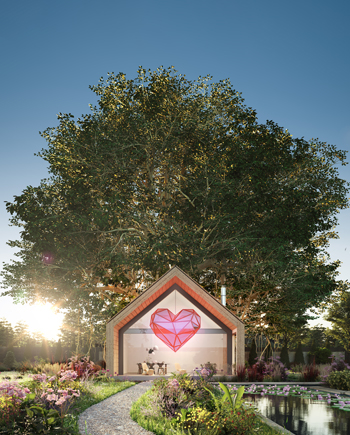In the past few months, I have taken a more active role in political groups within my community. I have always had a deep respect for the political institutions of this great country. Until recently, though, I saw my role more as one of an engaged and informed observer. As a result, I never gave much thought to the subject of patriotism as a dual citizen.
My change in attitude came about fairly quickly. I have discovered a burning sense of purpose — something almost as strong as a religious calling, in my experience. It stems from twin desires to protect the good in our society and help build something better for our children.
I am an American citizen. My business is based here in Miami. My kids were all born here, except for the two boys from my husband’s previous marriage. But I also don’t shy away from the fact that I wasn’t born in the States. I am proud to be Ecuadorian, and my family and heritage is what made me who I am today. So, after deciding to speak at a rally recently, I asked myself what it means to love two countries equally. Is it even possible to do that while being true to yourself? If so, how should we define patriotism as a dual citizen?
The Country of Your Birth Shapes You: It Deserves Your Loyalty
Ecuador is the land of my birth — my ‘original’ motherland. Both my parents’ families have deep roots in the country. My father’s family is from Quito, the capital, and my mother’s from Loja, often described as the cultural capital. My father was a political force. He helped found a political party, became a Senator, and even represented Ecuador at the U.N. That is probably the reason for my reluctance to play an active role in politics until this stage of my life: I idolized my father growing up but I never saw as much of him as I would have liked.
I still have family in Quito. I lived there for a few years after the birth of my first son. And I still catch myself thinking in Spanish more often than I would like! The link that we have with our motherland is unbreakable in that sense: it binds you to it by being a home for those closest to you, shaping your life experiences, and even embedding itself into the way you think and speak. But by that logic, I would argue, the same is true when it comes to patriotism as a dual citizen. Your new country, your host country, becomes a second motherland for exactly the same reasons. Let me explain how…
Studying Abroad Changes Your Understanding of Patriotism as a Dual Citizen
A lot of my major life decisions were shaped by a desire to live and work in the States. Leaving Ecuador as the daughter of a highly successful politician and urban developer (my father’s company designed and built skyscrapers in Quito) represented an enormous risk for me. I could have enjoyed a very comfortable life by never leaving the country. But my father had left to study in the States when he was a young man, and I desperately wanted to be like him. I wanted to receive education at the best international schools and, for me, that meant moving to New Orleans to get my architecture degree at Tulane.
Those years were incredibly formative for me. I learned my craft, learned to love it and, perhaps most importantly, I met the love of my life there — a statuesque, flaxen-haired young German who is now my husband! When it looked like we would never be together because our families were so far apart, it quickly became obvious to us that there was realistically only one country where we could build a life for ourselves and our children. America became our home, and it sheltered and nurtured our blended family that grew once we made the decision to move our respective children to our house in Florida.
Living in a New Country Develops Your Identity
As soon as my husband and I set up our business here, it became clear that we could not just simply bring our business acumen from Ecuador and Germany (respectively) and make things work in the States. To be successful in America, you have to think like an American. You have to act like an American. And even then, once you realize that that’s not enough, you have to actually be an American. People here expect nothing less — and why should they? America is an amazing country with proud traditions. It makes sense that Americans want to do business with others who really respect their role as part of the fabric of this great nation.
All of that said, let’s look back at what I believe links a person inextricably from their motherland:
1. It’s home for those you love
2. It has shaped, and continues to shape your life experiences
3. It defines and orders the way you think, feel and express yourself
In my case, and in the case of many other Latin Americans here in Florida — as well as other dual citizens across the States — those points apply just as much to America as they do to the country of my birth. Firstly, America is home to me and my family. A lot of my defining personal experiences were either made here or by my desire to be here. And, finally, being an American shapes all aspects of my life: from my business dealings, to my family life, to my social interests and passions.
Thriving in a New Motherland: Honor the Land and it will Sustain You!
In his 1977 book, The Land: Place as Gift, Promise, and Challenge in Biblical Faith, renowned American theologian Walter Brueggemann explores the symbiotic relationship between people, the land they inhabit, and God. The parable of the sower (in Matthew 13, Mark 4), for example, and Paul’s oft-quoted line in his letter to the Galatians (6:7) — “you reap whatever you sow” — make explicit the fact that early readers of the Bible formed an agrarian society who easily understood ecological analogies. Prophesies and punishments expressed in Genesis (3:17–9) and Isaiah (5:5–6 et al.) make equally clear how the land will suffer should God’s people break their covenant with him.
For me, and for anyone considering the issue of patriotism as a dual citizen, Brueggemann’s interpretation is extremely relevant. To love God is to love his Creation, and the land that we live in is an important part of that. In Genesis (9: 1–17), one of God’s first interactions with Noah after his home has been swept away by the flood is to renew His holy covenant. In Jeremiah (29:5–7), when God’s people are in exile in a foreign land, God promises that the land will sustain them:
“…seek the welfare of the city where I have sent you into exile and pray to the Lord on its behalf, for in its welfare you will find your welfare.”
Jeremiah encourages the exiles to ‘build, plant and marry’ in their adopted land, something that Brueggemann describes as a traditional formula for blessing the land. Today’s dual citizens — Christians or not — have a similar covenant with the land they live in (and with God). Only by contributing to its success and respecting its customs can we survive — and thrive — in our new motherland.



